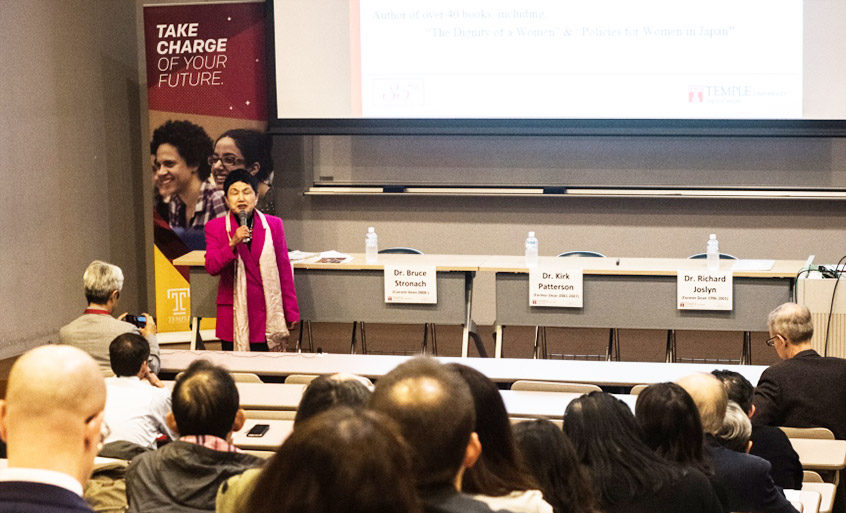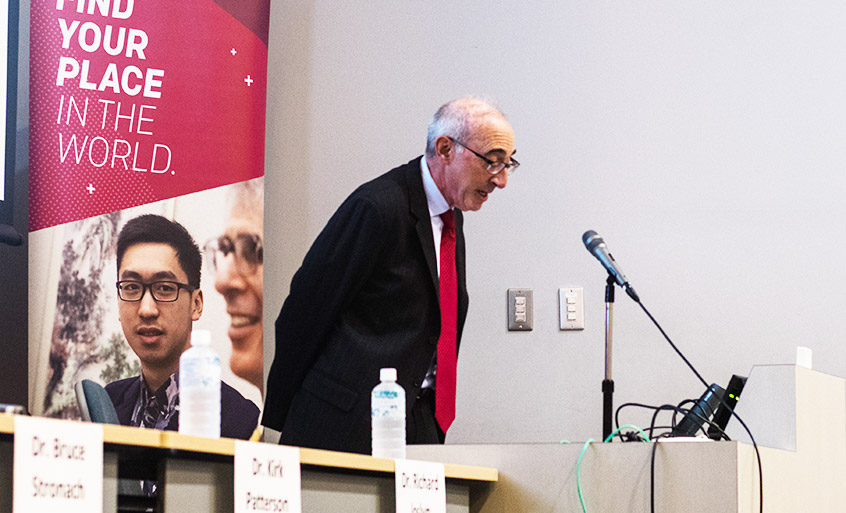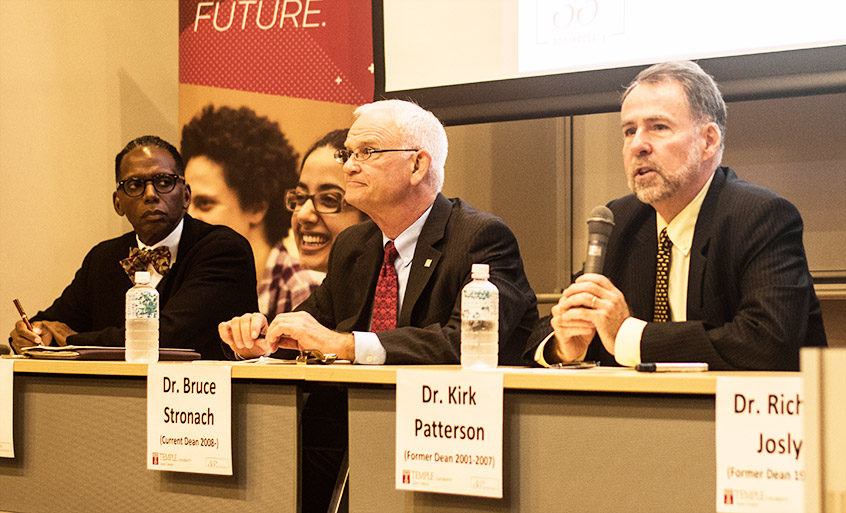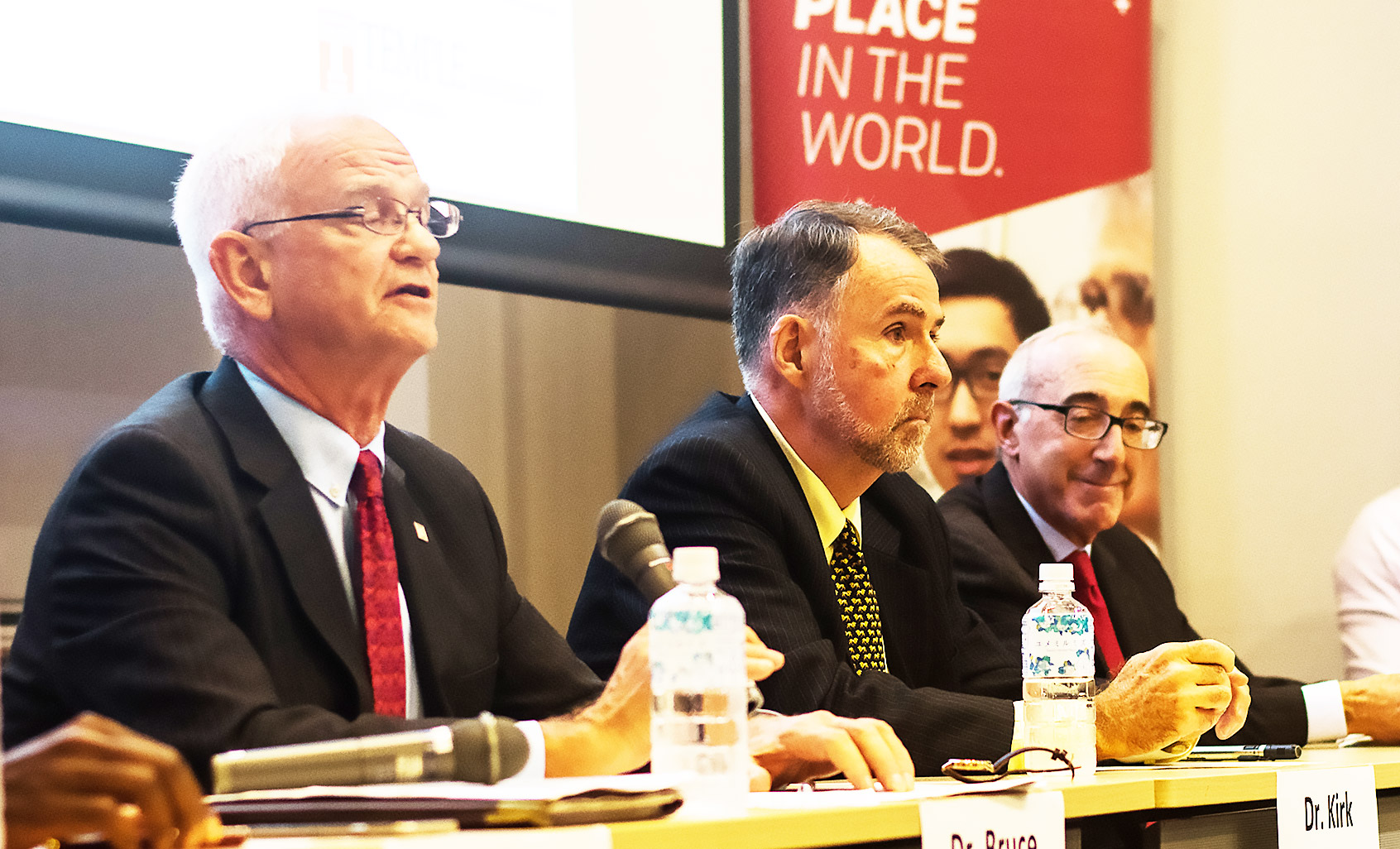
In 1982, an agreement between Temple University and a group of Japanese educators and businessmen created the first American university in Japan — Temple University, Japan Campus (TUJ). 35 years later, TUJ is thriving in Japan. On October 21, some of the most influential people in the creation and continued success of TUJ came together for a special 35th anniversary symposium at Showa Women’s University (SWU). The event was not only a time to look back on all that TUJ has accomplished, but also to see the plans TUJ has for the future. Dean Bruce Stronach announced that it was not a coincidence that this symposium was held at SWU. In 2019, TUJ will move into a building on SWU’s campus. Stronach and Chancellor Mariko Bando of SWU had the idea to form a global campus to further globalize Japanese higher education.

Richard Joslyn, TUJ dean from 1996 to 2001, spoke about the TUJ history project he has been undertaking to compile a book. TUJ has gone through a lot to become what it is today. Joslyn spoke about how TUJ had a rough start, until Temple switched their Japanese business partner. Under new guidance and leadership TUJ started to become a more significant university in Japan. The Japanese students enrolled at TUJ were pioneers. The students were taking college level courses in a second language in Japan. This was unheard of at the time. TUJ started out by mainly targeting only Japanese students, but has grown into the diverse and multicultural institution it is today.
TUJ was the first foreign university to create a satellite campus in Japan. It was a true trailblazer. TUJ’s launch was followed by over 40 other foreign universities, but after the “bubble” burst many American universities pulled out of Japan. TUJ stayed though, even when its business partner left the partnership in 1996. Temple had to decide whether to pull out as well or own and operate TUJ itself. The management chose the latter and TUJ has ever since been solely operated by Temple University Main Campus. Arguably though. one of the most important achievements in TUJ’s life was in 2005, when Japan’s Ministry of Education, Culture, Sports, Science and Technology designated TUJ as the first “Foreign University, Japan Campus.” This groundbreaking accomplishment could not have happened without the initiative of Kirk Patterson, the dean of TUJ at the time. At the symposium Patterson described his “Shiatsu” approach in lobbying Japanese authorities, utilizing pressure from both outside and inside the country. This designation as a “Foreign University, Japan Camps” was significant because it allowed TUJ to sponsor visas for foreign students, which led to a sharp increase in the proportion of foreign nationals in the student body.

Throughout its lifespan TUJ’s location has changed, but Stronach reminded everyone that TUJ’s mission has not changed. “To educate students is the mission, not where but to educate them,” said Stronach. TUJ has always been about educating students, no matter whether they are Japanese or from other countries around the world. The symposium was a reminder of all that TUJ has accomplished as an American university in Japan, but it also was a testimony to the hard work of the people who have made TUJ what it is today. During each of their talks, Dean Stronach and former deans Kirk Patterson and Richard Joslyn gave praise and thanks to members of the audience for what they did for TUJ. The symposium celebrated 35 years of TUJ, but had the audience looking forward to the next 35 years.
Related Links
- The New Campus Project
- Temple University, Japan Campus’ 35th Anniversary Symposium “Developing a Successful Overseas Branch Campus: TUJ Yesterday, Today and Tomorrow”

